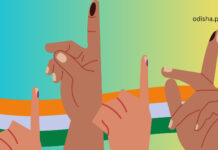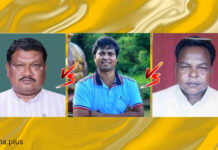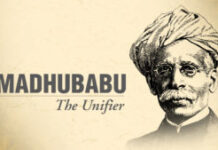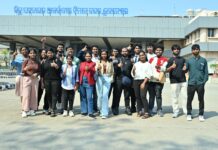OdishaPlus Bureau
- A joint initiative of OdishaLIVE and Swasthya Plus
- Supported by UNICEF, Odisha
- Brings insights on COVID-19 management in the state
- Stories of COVID Heroes
- Advises by Doctors and Specialists
- Radio series airs every Sunday at 10.30 AM
- Emphasis on children, education, health, youth and more
ପିଲାଙ୍କ ସ୍ୱାସ୍ଥ୍ୟ, ଶିକ୍ଷା ଏବଂ ସୁରକ୍ଷା | କେତେ ନୂଆ ବାଟ –୨ : Audio Series on COVID-19 in Odia Episode-2
ପିଲାଙ୍କ ସ୍ୱାସ୍ଥ୍ୟ, ଶିକ୍ଷା ଏବଂ ସୁରକ୍ଷା | କେତେ ନୂଆ ବାଟ –୨ : Audio Series on COVID-19 in Odia Episode-2କରୋନା ମହାମାରୀ ଯୋଗୁଁ ସାରା ବିଶ୍ୱରେ ଆତଙ୍କ ଖେଳିଯାଇଛି। ଏଭଳି ପରିସ୍ଥିତିରେ ବଡ଼ ଲୋକଙ୍କ ଭଳି ଛୋଟ ପିଲାଙ୍କ ଉପରେ ମଧ୍ୟ ଖୁବ୍ ପ୍ରଭାବ ପଡ଼ିଥାଏ। ତେଣୁ କରୋନା ସମୟରେ ଶିଶୁମାନଙ୍କ ସ୍ୱାସ୍ଥ୍ୟ, ଶିକ୍ଷା ଓ ସୁରକ୍ଷା ଭଳି ଗୁରୁତ୍ୱପୂର୍ଣ୍ଣ ବିଷୟକୁ ନେଇ 'କେତେ ନୂଆ ବାଟ'ର ଏହି ଅଧ୍ୟାୟ ପର୍ଯ୍ୟବେସିତ।କୋଭିଡ୍-୧୯ ଭଳି ଏକ ଜଟିଳ ସମୟରେ କିଛି ନୂଆ ସୂଚନା, କିଛି ସାହସ ଓ କିଛି ସକରାତ୍ମକ ବାର୍ତ୍ତା ନେଇ ପ୍ରସ୍ତୁତ ହୋଇଛି ଏହି ରେଡିଓ ଧାରାବାହିକ ‘କେତେ ନୂଆ ବାଟ’। ଏଥିରେ ରହିଛି କୋଭିଡ୍ ମୁକାବିଲା ସମ୍ପର୍କରେ ନୂଆ ଦିଗ ଓ ତଥ୍ୟ, ଏହି ଲଢ଼େଇରେ ଆଗଧାଡ଼ିରେ ଥିବା ପ୍ରମୁଖ ବ୍ୟକ୍ତିଙ୍କ ସହ ସାକ୍ଷାତକାର, କୋଭିଡ୍ ହିରୋଙ୍କ କାହାଣୀ, ସ୍ୱାସ୍ଥ୍ୟ ପରାମର୍ଶ ଓ ଆହୁରି ଅନେକ କିଛି।#KeteNuaBata #TogetherForTomorrow #COVIDWarrior
Posted by Swasthya Plus Odia on Saturday, June 6, 2020
Like adults, children get equally affected during such critical times as the Coronavirus infection. The government is taking ample steps to ensure children do not lag behind their basic rights during COVID19. This effort is further supported by UNICEF. Monica Nielsen, Chief of Field Office UNICEF Odisha while speaking on the second episode of ‘Kete Nua Bata’ remarks, “Children are the most vulnerable in times of crisis and this pandemic has impacted children in multiple ways. Children are missing teacher interactions due to closure of schools, preschool activities are down due to closure of aanganwadi centres. Due to large scale migration, small children are undergoing harsh changes”.
“Similarly, due to economic shutdown, children are at a risk of dropping out from schools and even being forced into child labour and trafficking. UNICEF is acknowledging these changes and bringing together parents, CSOs and the society together alongwith the state and local administration to ensure the wellbeing of children”, Ms. Nielson concluded.
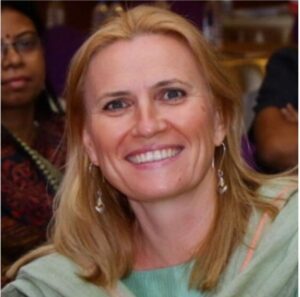
Anu Garg, Principal Secretary, WCD & MS Dept. Govt. of Odisha, said “since Aanganwadi centres were closed, we were worried as to how the children would get nutritious food otherwise. Then, we collected all the dry ration like pulses, condiments, oil, and eggs and rationed it in portions and distributed it door to door to the children. Then, we teach various co-curricular activities to children every month with a specific theme. Hence we created a daily activity based calendar called ‘Ghare Ghare Arunima’ so that the parents get involved with children, acquire basic COVID knowledge, and keep themselves engaged and entertained even during the lockdown.”
The children were also encouraged to engage in creative activities in the ‘Mo Pratibha’ campaign where many children sent their paintings. Subsequently, we talked with Lalit Kala Academy to put all those paintings in an exhibit, informs Ms. Anu Garg, Principal Secretary, WCD & MS, Govt of Odisha.
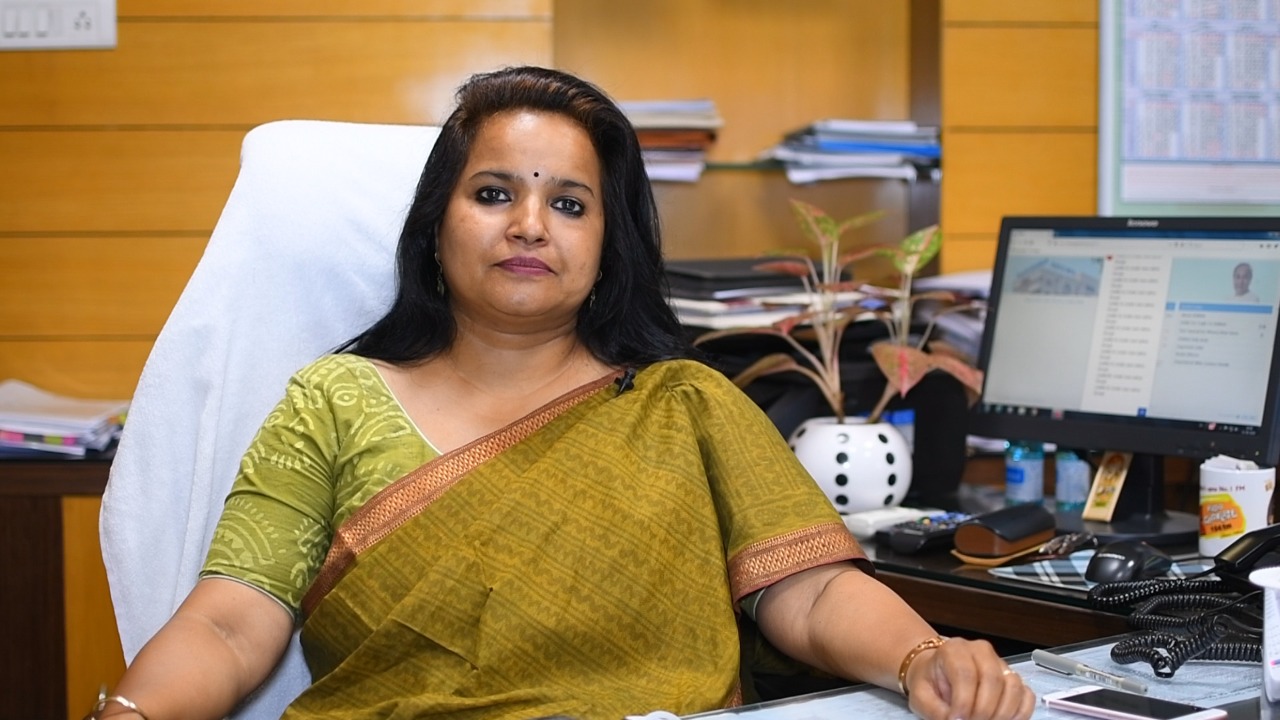
During the spread of Coronavirus and the lockdown scene, digital news platform OdishaLIVE and health & wellness portal Swasthya Plus have come together with a new media campaign titled ‘Kete Nua Bata’, supported by UNICEF Odisha. The campaign aims at disseminating new information to the public while sprouting courage though positive messages and the real life stories of COVID Heroes.
As a part of the campaign, ‘Kete Nua Bata’, a weekly radio series is lined up every Sunday on 10.30 AM. The programme goes on air in all stations of All India Radio, Odisha, every Sunday at 10.30 am. Similarly, the audio series reaches the audiences at the same time in India and abroad through web and social media platforms of OdishaLIVE and Swasthya Plus including Facebook, Helo and YouTube.
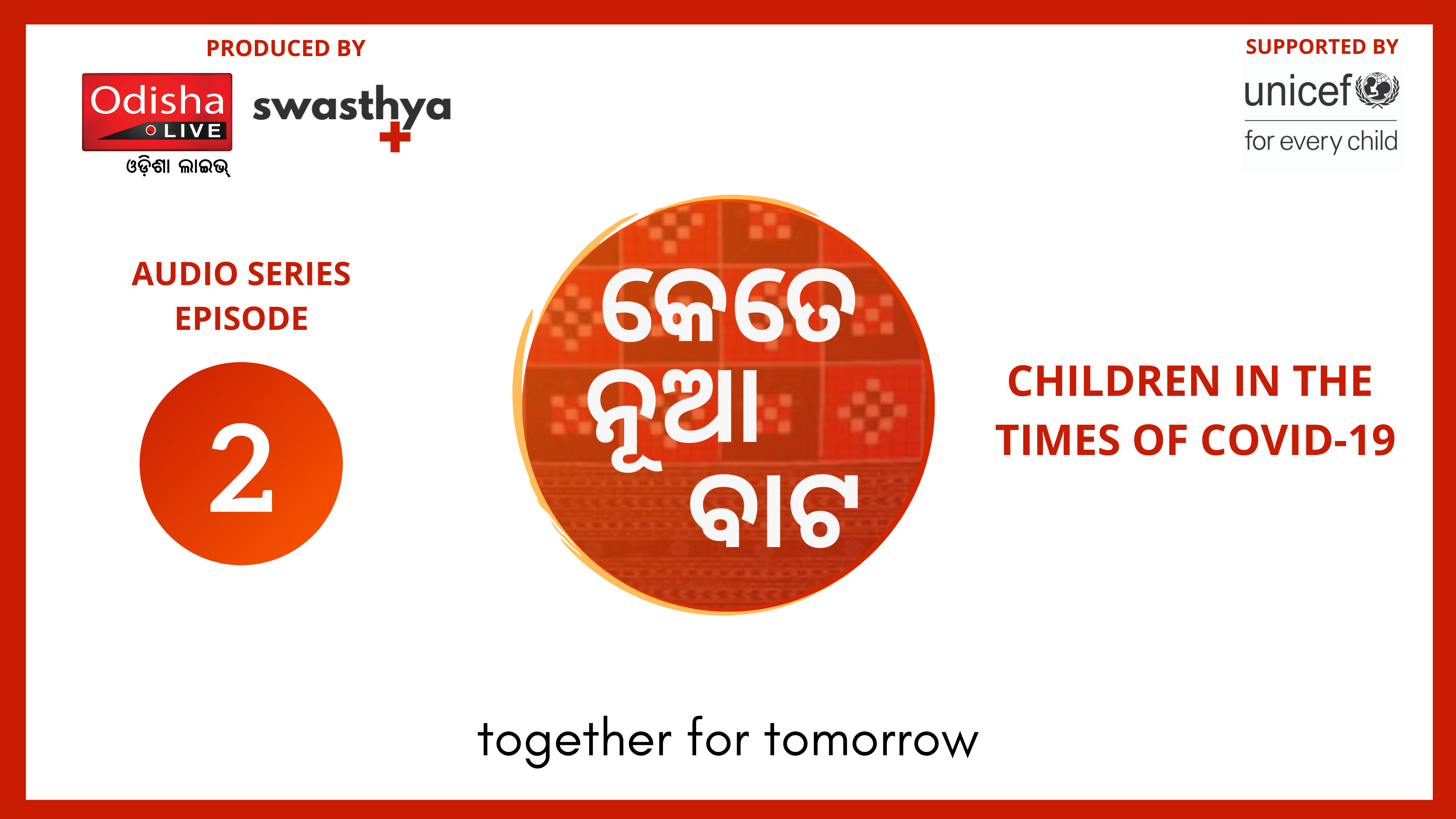
Lalita Patnaik, Education Specialist UNICEF Odisha while speaking on child activities said “we prepared the ‘Ghare Ghare Arunima’ calendar with due inputs from the concerned officials. We also included ‘Tiki Mausi’, the state government’s flagship scheme to encourage personal hygiene, sanitation and cleanliness among children during COVID time in the calendar of tasks.”
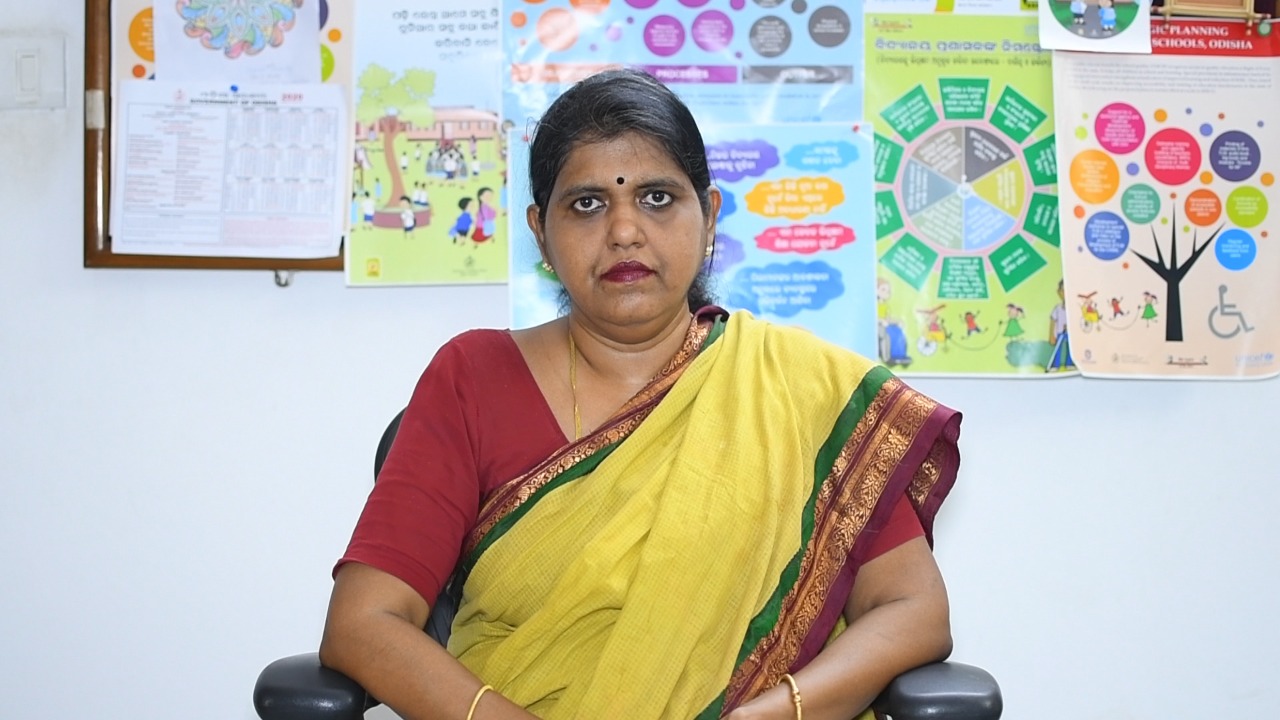
COVID Hero, Jagdish Chandra Dora, Teacher at Biranarayanpur UP School, Rayagada, informs “we arranged to teach main subject to students via cell phones because there was no clue about reopening of schools during the lockdown. We could only arrange four mobile phones as the area is an interior region and we tagged five children per phone. The children were excited to explore this new mode of learning. Six days a week the students took notes and learnt their lessons. On Sunday I examine their answer sheets where they wear mask, practice social distancing and hand hygiene. I have also examined their papers by moving door to door and sometimes in the school playground. The children are so fond of this digital learning that when the class gets over, they refuse to go home sometimes asking me to carry on teaching. This gives me strength in these tough times.
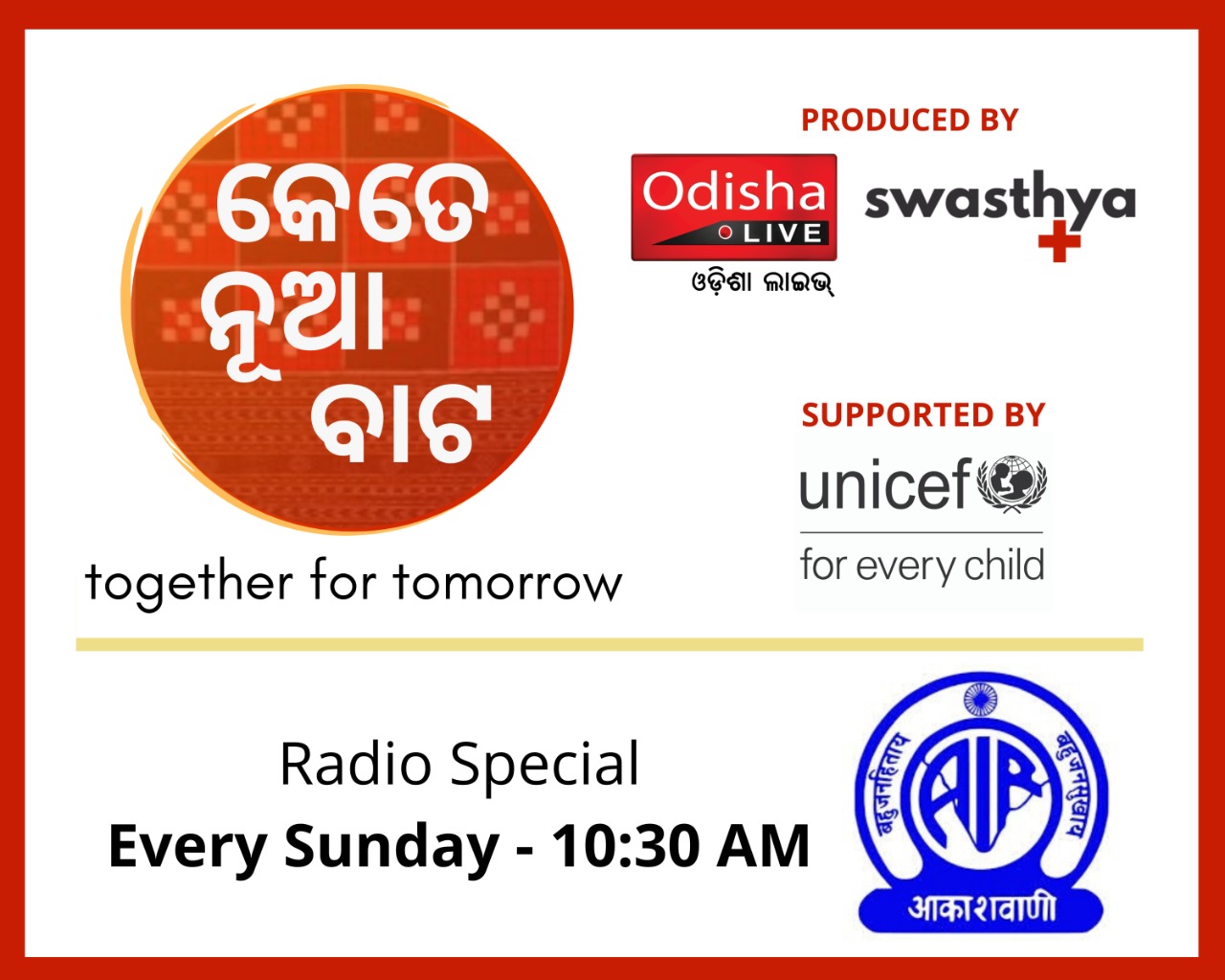
During COVID 19, we have to prevent children from mental stress as well as harassment and exploitation. Elaborating on the above, Neha Naidu, Child Protection Specialist UNICEF Odisha, says “during COVID times, children cannot get together to perform any activity. Hence UNICEF Odisha has come up with a psychosocial support module for children where they can perform activities wherever they are. We have made separate activity modules for children aged 6-10 and another module for ages 11-18. There is special focus on children who could be subject to domestic violence at home because they are at an increased level of stress. Similarly, we have also focused on children staying at child care homes or those coming with migrants. ‘Tiki Mausi’ makes the children aware of all such topics in the program”.
While talking about child protection, State Program Manager, Odisha State Child Protection Society, Pritikant Panda, said “in every police station, there is a separate woman and child protection desk. The designated child protection officers are trained in the subject to handle child violence and harassment cases diligently. We have a special childline number 1098 which is being publicized, where children can call and inform us if they are being tortured or abused at home.”
Towards the end of the episode of ‘Kete Nua Bata’, noted educationist and writer Prof. Dash Benhur recited a popular children’s poem where he inculcated the message of social distancing and staying at home during the corona crisis.

‘Keta Nua Bata’, written and produced by Nilambar Rath, founder and editor, OdishaLIVE and mentor of the campaign, is designed with 13 episodes and it shall go on air till 23 August 2020.
As a part of the campaign, the media is carrying a series of stories and interviews on the subject which are being published across more than 10 web and social channels. UNICEF’s popular animation and audio series, titled ‘Meena’, is also being aired and podcast under the ‘Kete Nua Bata’ campaign.

